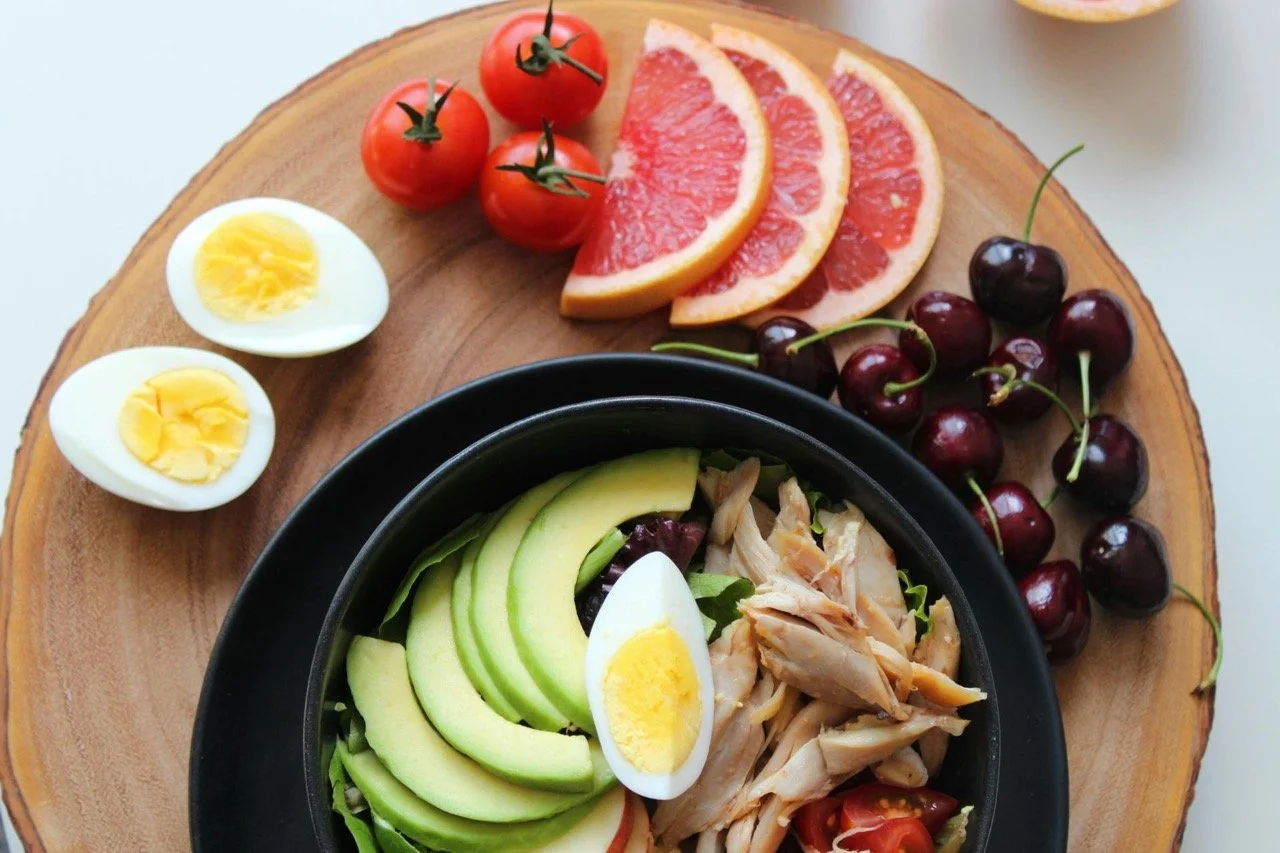The Power of Nutrient-Dense Foods
Photo by Jane Trang Doan from Pexels: https://www.pexels.com/photo/variety-of-food-on-wooden-coaster-793759/
Hey there, health enthusiasts!
Let’s chat about something that can totally transform your life without requiring you to move to a mountaintop or meditate for hours—nutrient-dense foods. These little gems are the superheroes of the food world, packed with vitamins, minerals, and all the good stuff our bodies crave. If you've ever wondered why some people seem to have boundless energy and a positive outlook, while others struggle with fatigue and mood swings, the secret often lies in what they’re eating.
Why Are These Foods So Special?
Think of nutrient-dense foods as the Swiss Army knives of nutrition. They give you a lot of bang for your buck, nutritionally speaking. Instead of munching on empty-calorie snacks that leave you feeling blah, these foods pump you full of energy, mental clarity, and even a bit of happiness (yes, food can do that!). Nutrient-dense foods are those that provide substantial amounts of vitamins, minerals, and other nutrients with relatively few calories. They’re like that friend who’s always there when you need them, offering support and good vibes.
Balancing the Gut-Brain Axis
Remember our old friend, the gut-brain axis? It’s like the Wi-Fi connection between your belly and your brain. When your gut is happy, your brain gets all the right signals, keeping you calm and collected. Nutrient-dense foods help keep this connection strong and interference-free by reducing inflammation and supporting a healthy microbiome. Imagine your gut as a lush garden. If you feed it well, it thrives and, in turn, helps your brain blossom with positivity and sharpness.
Foods That Rock
Alright, let’s get to the good part—what should you be eating to join the nutrient-dense club? Here are some all-stars:
Leafy Greens: Think spinach, kale, and Swiss chard. They’re like the overachievers of the veggie world, packed with vitamins A, C, and K. They also contain fiber and antioxidants, which help reduce inflammation and support overall health.
Berries: Blueberries, strawberries, raspberries—they’re tiny but mighty, loaded with antioxidants and fiber. These little fruits are not only delicious but also protect your cells from damage and reduce the risk of chronic diseases.
Healthy Fats: Avocados, nuts, and seeds are your friends. They keep your brain sharp and your belly full. Healthy fats are essential for absorbing fat-soluble vitamins and providing long-lasting energy.
Organic Meats: Grass-fed beef and wild-caught fish bring high-quality protein and essential fats to the table. They provide omega-3 fatty acids, which are crucial for brain health and reducing inflammation.
Cleansing Foods: Beets, grapefruit, and dandelion greens help your body detox like a pro. These foods support liver function and help flush out toxins, keeping your system clean and efficient.
How to Make It Happen
Great, so you know what to eat—but how do you make it a part of your daily life without feeling overwhelmed? Here are some practical tips:
Plan Ahead: Use a meal planning app like Paprika (no, it’s not just a spice) to organize your meals and shopping lists. Planning your meals ensures you always have the ingredients for nutrient-dense meals on hand, making it easier to stick to your healthy eating goals.
Cook at Home: Channel your inner chef. Cooking at home gives you control over what goes into your body. Experiment with new recipes and ingredients, and soon you’ll find that cooking healthy meals is not only rewarding but also fun.
Snack Smart: Keep healthy snacks like nuts, seeds, and fresh fruits on hand to avoid those sneaky processed foods. Having these options readily available can prevent you from reaching for junk food when you’re hungry.
Stay Hydrated: Water is life. Drink plenty of it to keep things moving smoothly. Proper hydration is essential for digestion, nutrient absorption, and overall health.
The Role of Mindful Eating
Incorporating nutrient-dense foods into your diet is more than just a physical act; it’s also about changing your mindset around food. Mindful eating involves paying full attention to the experience of eating and drinking, both inside and outside the body. Here are some tips to practice mindful eating:
Slow Down: Take your time to chew thoroughly and savor each bite. This not only aids digestion but also allows you to appreciate the flavors and textures of your food.
Listen to Your Body: Tune into your hunger and fullness signals. Eat when you’re hungry and stop when you’re satisfied, not stuffed. This can help prevent overeating and ensure you’re eating the right amount for your body.
Enjoy the Experience: Make your meals a special time, free from distractions like phones and TV. Focus on the food and the company, if you’re eating with others.
Foods to Avoid
While adding nutrient-dense foods is crucial, it’s also important to know which foods to cut back on. Here are some common culprits that can sabotage your health:
Processed Foods: These are often high in added sugars, unhealthy fats, and sodium. They provide little nutritional value and can contribute to weight gain and chronic diseases.
Sugary Drinks: Beverages like soda, sweetened teas, and energy drinks can add a significant amount of sugar to your diet, leading to energy crashes and weight gain.
Refined Grains: White bread, pasta, and pastries have been stripped of their nutrients and can cause spikes in blood sugar levels.
Wrap-Up
Embracing nutrient-dense foods doesn’t have to be a chore. Start small, make one or two changes, and see how you feel. Your body and mind will thank you. And hey, you might even start feeling like the superhero of your own story. Onward to health, my friends! By focusing on adding these powerful foods to your diet and being mindful about your eating habits, you’re setting yourself up for a vibrant and energetic life. Cheers to nourishing your body from the inside out!


